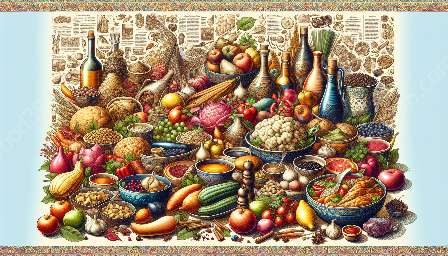The Renaissance had a profound impact on the refinement of culinary skills, contributing to the evolution of cooking techniques and tools and the origin and evolution of food culture.
The Renaissance and Culinary Refinement
The Renaissance, a period of rebirth and cultural revitalization in Europe from the 14th to the 17th century, brought about significant changes in various aspects of human life, including the culinary arts. The period witnessed a revival of interest in classical knowledge, arts, and learning, which extended to the realm of food and gastronomy.
Culinary Innovation and Creativity
One of the key impacts of the Renaissance on culinary refinement was the promotion of innovation and creativity in cooking. As the period emphasized individualism, curiosity, and exploration, chefs and cooks began experimenting with new ingredients, flavors, and cooking techniques, leading to the development of more refined and sophisticated dishes.
Influence on Ingredients and Spices
The Renaissance era saw an influx of new ingredients and spices introduced to European cuisine, largely due to increased trade and exploration. The discovery of the New World brought tomatoes, potatoes, and peppers to Europe, while trade routes to Asia and the Middle East introduced exotic spices such as cinnamon, nutmeg, and cloves. These new additions expanded the culinary palette, leading to the creation of unique and flavorful dishes.
Culinary Arts and Patronage
Patronage by wealthy and influential individuals, including nobles, merchants, and royalty, played a significant role in fostering the refinement of culinary skills during the Renaissance. The demand for elaborate feasts and banquets spurred the development of more sophisticated cooking techniques, presentation styles, and dining experiences, supported by the emerging culinary professionals of the time.
Evolution of Cooking Techniques and Tools
The Renaissance era also witnessed notable advancements in cooking techniques and tools that have had enduring impacts on culinary refinement. The refinement of culinary skills during this period contributed to the evolution of cooking methods and the introduction of new tools that revolutionized the way food was prepared and served.
Advancements in Culinary Technology
Technological innovations, such as the development of more efficient stoves, ovens, and kitchen utensils, transformed the culinary landscape. The availability of better tools and equipment enabled cooks to experiment with different cooking methods, leading to improved precision and control in the preparation of dishes.
The Influence of Culinary Treatises
Notable culinary treatises and cookbooks emerged during the Renaissance, providing valuable insights into cooking techniques, food presentation, and culinary skills. Renowned chefs and authors, such as Bartolomeo Scappi and Catherine de Medici's personal chef, documented their expertise in these influential works, influencing the evolution of cooking practices for generations to come.
Origin and Evolution of Food Culture
The Renaissance period also laid the groundwork for the origin and evolution of modern food culture, shaping dining habits, etiquette, and culinary traditions that continue to influence contemporary gastronomy.
Cultural Exchanges and Fusion Cuisine
The cultural exchanges facilitated by the Renaissance, through trade, exploration, and diplomatic relations, led to the fusion of culinary traditions from different regions. This blending of diverse food cultures gave rise to new culinary styles, as ingredients and cooking techniques from various parts of the world were integrated into local cuisines, enriching the culinary landscape.
Dining as a Status Symbol
The refinement of culinary skills and the emphasis on lavish banquets and sumptuous feasts during the Renaissance elevated dining into a symbol of social status and sophistication. Elaborate dining rituals, etiquette, and table settings became integral to the evolving food culture, reflecting the importance placed on food as a signifier of wealth and refinement.


